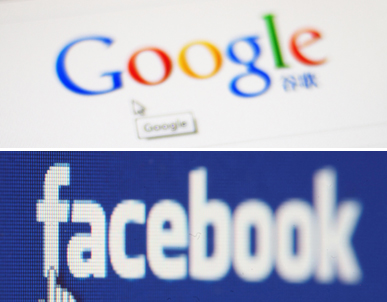Previously on this blog I’ve stated that I love the B2B/B2G focus on my agency. We don’t try to sway the masses, manipulate legislation or try to rehabilitate the reputations of foreign dictators. We help our clients achieve their business objectives — sell more of their stuff/services to be blunt — using social media channels.
I was thankful for this when I read about the sad story of Burson Marsteller and Facebook. In a sordid display of how “traditional PR” is practiced by some “blue-chip” firms, Facebook hired Burson to conduct a “whisper campaign” against Google, accusing them of privacy violations. Burson did not to disclose Facebook as their client, and assigned two prominent former journalists, former CNBC anchor Jim Goldman and former HOTLINE/National Journal reporter John Mercurio to the case.
The plan was for you and me to be reading opinion pieces in the Washington Post, Politico, Huffington Post and others bashing Google for privacy violations against “millions of Americans.” Kudos to security and privacy blogger Chris Soghoian for exposing the smear campaign by making public the emails he received from Mercurio — you can check them out here.
This led to stories by Dan Lyons in the Daily Beast, USA Today and Tech Crunch, which gets the award for the juiciest headline. For me the best quote goes to the Lyons story about Goldman and Mercurio — “Here were two guys from one of the biggest PR agencies in the world, blustering around Silicon Valley like a pair of Keystone Kops.”
Since I’ve criticized USA Today for being overly credulous about technology stories in the past, I guess it’s only fair to give them credit for passing on this non-story. In the piece they did run on the PR controversy, USA Today makes the fair point that there are plenty of legitimate privacy questions about Google — Facebook didn’t have to create a bogus one.
I work hard to promote the interests of my clients, but with transparency about who I am and who my clients are. To me this is a prerequisite for success in social media channels. Clients simply need to think of themselves as thought leaders in their particular niche, which they usually are. Then publish interesting, objective content on a regular basis, attract an audience and engage that audience in a way that supports the business goals of the organization.
Often this is easier to describe than execute, I’ll grant you. But it has none of the moral ambiguity of former journalists trying to work their rolodexes and manipulate public opinion with a bogus story on behalf of an anonymous client.

Good overview, Chris. Here’s more on the Facebook/Burson PR scandal from the New York Times. Includes examples of other tech companies who have displayed poor ethics in the handling of their PR. http://nyti.ms/iyUPjL
Well said, Chris.